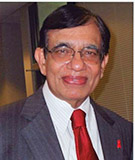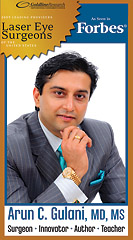
Strengthening your Self-Defense against Diseases – Part vII
TAKE STEPS TO BEAT CHRONIC STRESS

The holiday season is upon us. There are parties to arrange and celebrations to attend. Trying to get a last minute air booking to another city can be difficult and costly. Those who live by themselves feel lonely and depressed during this time. Add to that the avalanche of calamities happening all around the world on a daily basis. In today's go-go society, tension runs rampant as people begin to realize that the world has changed. To some, what happens in their daily lives is what nibbles them to death.
"I am 63 and I just lost my job, where am I going to get another one now?" said one of my patients recently.
"I have to do a million things every single day, get my children ready and take them to school, go to work, do the grocery shopping and get the dinner on the table before my husband gets home," a young mother complained.
Is it any wonder people get stressed out? During the past few months, I have seen my share of patients presenting with symptoms from anxiety and depression, all related to stress. In short, stress has become all too pervasive in our lives.
So, what is stress?
“The unpleasant feelings evoked by a perceived threat,'' would be a simple definition. During times of stress, our sympathetic nervous system secretes certain hormones such as adrenalin, which help us to mount an effective fight-or-flight response. This can also trigger unwanted effects creating tension in the body or mind. However, our parasympathetic system, which relaxes and rejuvenates us, is turned off at this time, so you lose its balancing effect. Stress can be manifested in the form of physical ailments like chest pains, headache or fatigue, because of the strong mind-body connection. In some, mental effects such as anxiety, irritability, depression, insomnia and lack of sex drive predominate, resulting in poor performance. Stress is also a diagnosis by exclusion; make sure you are not suffering from any organic disease.
Stressful jobs can have a direct biological impact on the body. Psychological stress poses a high risk for heart attacks; this became quite obvious after 9/11. The interesting fact is that some people tend to deny if anything is wrong with them but denial won't do, nor being indifferent. One has to accept the realities of life and take action. Experts say, it’s not so much the stress that kills you, but it is the way you react to it. In other words, the attitude matters most. We cannot change the world, but we can change ourselves. Sometimes, life can be daunting with all those irritating roadblocks – incessant pressures and myriad constraints in your daily life. Compromises and adjustments are necessary and we need to create a work-life balance. Here are a few suggestions:
-
Decide if a problem exists before you rev up your angst. Often, we react to perceived adversities that may not even exist.
-
Learn how to relax. Go for a movie or visit a friend. Or simply take a walk in the neighborhood, it can be refreshing. If you are a perennial worrywart obsessing about all the minutiae in life, some lifestyle modification is in order. You can start with meditation. It enhances your inner peace and calm, giving you strength to face the day's problems.
-
Take a vacation; you will come back refueled with more energy. Pay attention to your diet and nutrition; a well-balanced diet is important for health maintenance.
-
Keep yourself in shape, even during long travels, with a proper exercise routine.
-
Get rid of all bad habits. Don't light up a cigarette every time you get bad news and use alcohol only in moderation and always “no to drugs.”
-
Stay interested in others and be part of a support group in your community. Volunteering for a good cause connects you with people and can uplift your spirits. It’s good to have a close friend or confidante to give you a little counseling during periods of stress.
-
Inculcate spirituality. There is a lot of evidence, backed by Harvard research, that faith can improve your health. Spirituality is now taking a center step in the treatment of many diseases.
-
And don't underestimate the power of positive thinking. Be cheerful and laugh as much as you can every day.
We all need to learn how to manage our emotions under pressure and stay calm. As the great pastor Dr. Robert H. Schuller once said, "Tough times never last, but tough people do."
M.P. Ravindra Nathan, M.D., is a cardiologist and Emeritus Editor of AAPI Journal. His book “Stories from My Heart” was recently released. (www.amazon.com or www.bn.com).
Eye Care
Diwali is over, Lamps are out yet there is GLARE In your Vision!

“You may have haloes, glare, hazy vision, night driving is difficult with distortion, distance and or near vision is not crisp anymore.”
This is a continuation as part II of our column regarding premium lens implants for cataract surgery and their side effects in particular.
I teach surgeons that any outcome besides the planned “effect” is a “side effect” and most usually unpleasant. For teaching purposes, I like to divide the cause of side effects into the following categories:
1. Pre-existing pathology;
2. Surgical process;
3. Associated optical errors;
4. Lens Implant itself.
In your thorough preoperative evaluation, any pre-existing pathology (i.e. macular degeneration/dry eyes/corneal scar, etc.) may have been documented and you were most likely informed about less than optimal vision potential.
Cataract surgery is still a “surgery”; this is important to understand as I drive home the point that no surgery is “routine” so think before you sign up and make sure you never end up on a “conveyer belt” of cookie-cutter surgeries.
With modern technology today, surgery in most cases is well done but any complications in surgery can result in less than optimal vision outcome. This category can be corrected in most cases with corrective cataract surgery and anatomical repair.
In a majority of cases that are referred to me of unsatisfied patients following cataract surgery with their surgeons, the most common cause is always a residual refractive error (astigmatism/nearsightedness/farsightedness, etc.) These can easily be corrected using advanced laser/Lasik techniques while leaving your precious lens implant in place. In some cases, the errors may be so large or the impact so soon after surgery that your lens implant can be exchanged for a correctly calculated one to bring you to perfect vision without glasses.
In some cases, the lens implant though mathematically correct may be physically defective or damaged and may need to be adjusted, re-centered or even exchanged with another lens implant.
So, in summary then, if your vision outcome is unsatisfactory in any way at all, then discuss with your surgeon and they can work on improving your vision as planned before surgery using the above concepts and approaches.
Work with your surgeon like a team to reach your planned vision goal and maintain the “sparkle” in your eye!
Arun C. Gulani, M.D., M.S., is director and chief surgeon of Gulani Vision Institute in Jacksonville. He can be reached at [email protected] or visit www.gulanivision.com